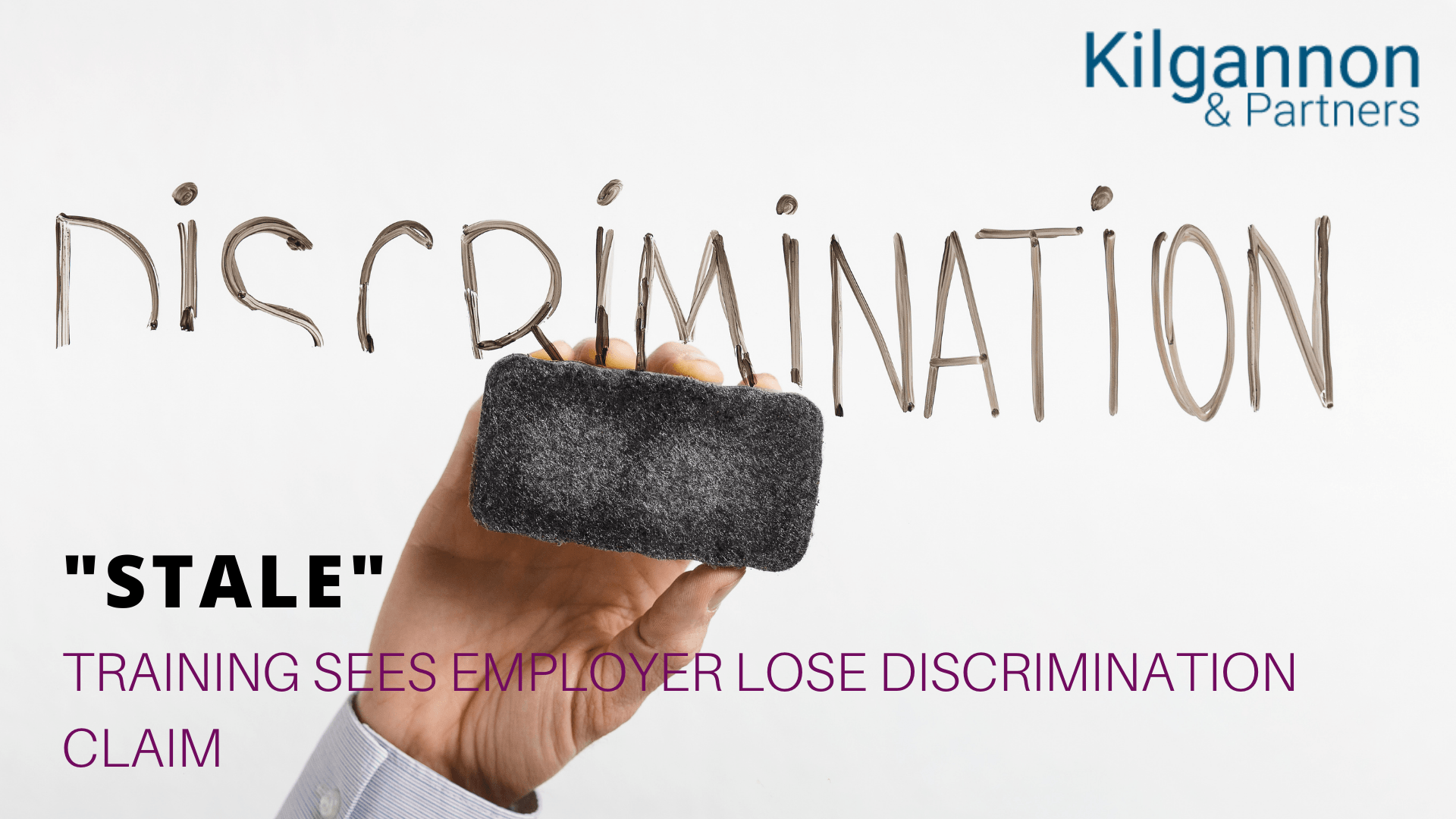“Stale” training sees employer lose discrimination claim
“Stale” training sees employer lose discrimination claim

The recent Employment Appeal Tribunal (EAT) case of Allay (UK) Ltd v Gehlen gives a helpful reminder of how employers can defeat discrimination claims (or not, as happened in this case).
Background
Employers are vicariously liable for the acts of their employees. Section 109 EqA states that “anything done by a person...in the course of [their] employment must be treated as also done by the employer.”
The Equality Act (EqA) includes a “Statutory Defence” against discrimination claims. This allows employers to escape liability for such claims.
Section 109 goes on to state that in discrimination proceedings against an employer in respect of anything alleged to have been done by a person in the course of their employment, it is a defence for the employer to show that it took “all reasonable steps” to prevent the perpetrator from a) doing that thing or b) from doing anything of that description.
The Allay case – Facts
Mr Gehlan was summarily dismissed in September 2017 for performance reasons with just under one years’ service. After his dismissal he complained that he was subject to racial harassment by his colleague, Mr Pearson.
The employer, Allay (UK), established that Mr Pearson had regularly made racist comments to Mr Gehlan and he underwent further Equality and Diversity training. Allay (UK) had an equal opportunities policy and an anti-bullying and harassment procedure. Further, Mr Pearson and one of the managers who knew what was happening underwent bullying and harassment training in February 2015 and equality and diversity training in January 2015.
Employment Tribunal (ET)
Allay (UK) relied on s109 EqA claiming it had taken all reasonable steps to prevent discrimination in the workplace and so should not have been liable. In the ET, Mr Gehlan failed in his claim of direct race discrimination but was successful in his complaint of harassment related to race and was awarded £5,030.63 compensation.
EAT
Allay (UK) appealed to the EAT. The EAT reviewed the leading case of Canniffe v East Riding of Yorkshire Council and confirmed a three-stage approach in considering whether the statutory defence applies:
- identify any steps that have been taken,
- consider whether they were reasonable,
- consider whether any other steps should reasonably have been taken.
Steps were clearly taken in the case; there were policies in place and training had been provided.
The Judges considered carefully whether the steps were reasonable and, here, the nature and extent to which the steps were likely to be effective was important. The EAT decided that because managers had ignored or not understood the training, that was relevant in deciding if all reasonable steps had been taken.
The EAT, quoting the EqA, decided that where the defence requires “all reasonable steps” to be taken that this had not happened, and the ET decision was upheld.
The ET concluded the training had become “stale” and the EAT agreed. The EAT also criticised the quality of the training and found this was a factor in Allay (UK) failing to establish the statutory defence. The fact that managers were unaware of what to do when they discovered harassment only supported its findings.
The EAT concluded that there were further reasonable steps by way of refresher training that Allay (UK) should have undertaken and, by not doing so, the statutory defence was unavailable meaning it remained liable.
Summary
The case is a reminder of the high threshold employers need to meet to benefit from the statutory defence. This means considering the frequency and quality of any policies and training.
If applicable, the statutory defence provides an escape from liability for employers, but time and effort is required to make sure it is available and likely to succeed. This typically involves two key steps:
- The first step is to ensure polices dealing with harassment and equality are up to date and compliant.
- The second step is to train all staff and managers on these issues and what behaviours are required in the workplace. That training needs to be good quality, regular and effective.
If you invest time and effort to prevent discrimination in the workplace, that should, on its own, help avoid claims and issues against your organisation. If, despite the investment and effort, you are still sued for discrimination, you may be able to avoid liability altogether.
Of course, we can help with both.
We regularly review and update such policies and we have devised a dedicated half-day training session that we can deliver to your staff and managers to help eradicate discrimination, but also help you defend claims should they occur.
If you would like any further information or want to discuss any of these issues then please contact the writer, Matthew Kilgannon, via mk@kilgannonlaw.co.uk or on 01483 388 900.
Kilgannon & Partners LLP is a specialist employment law firm where our experienced employment law partners offer practical, prompt and professional employment law and HR advice.
19th March 2021. © Kilgannon & Partners LLP











